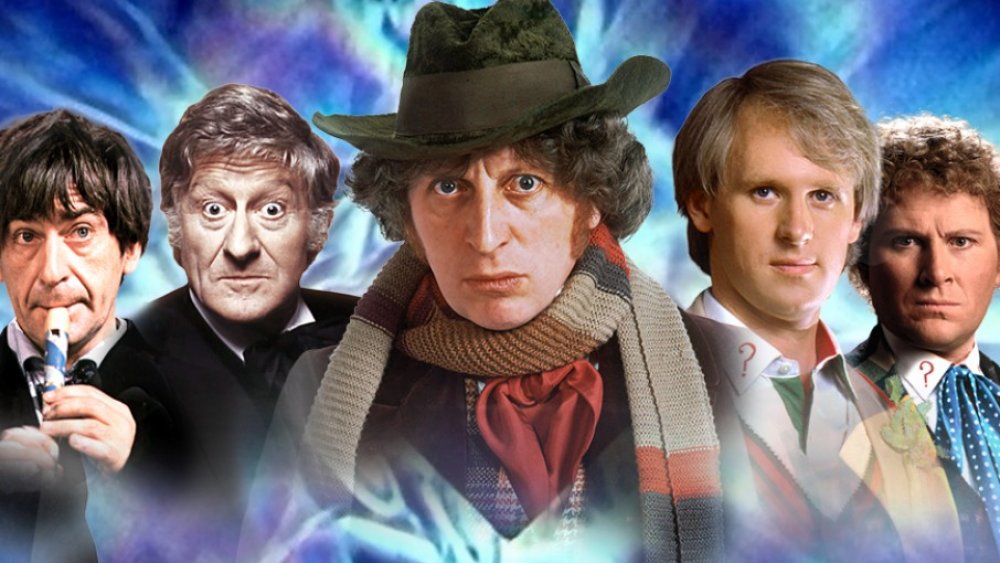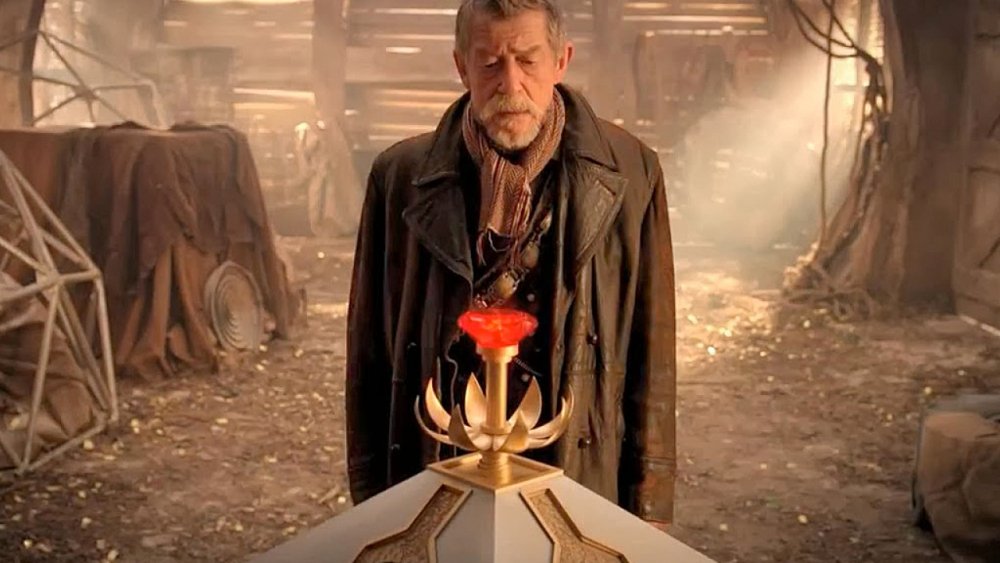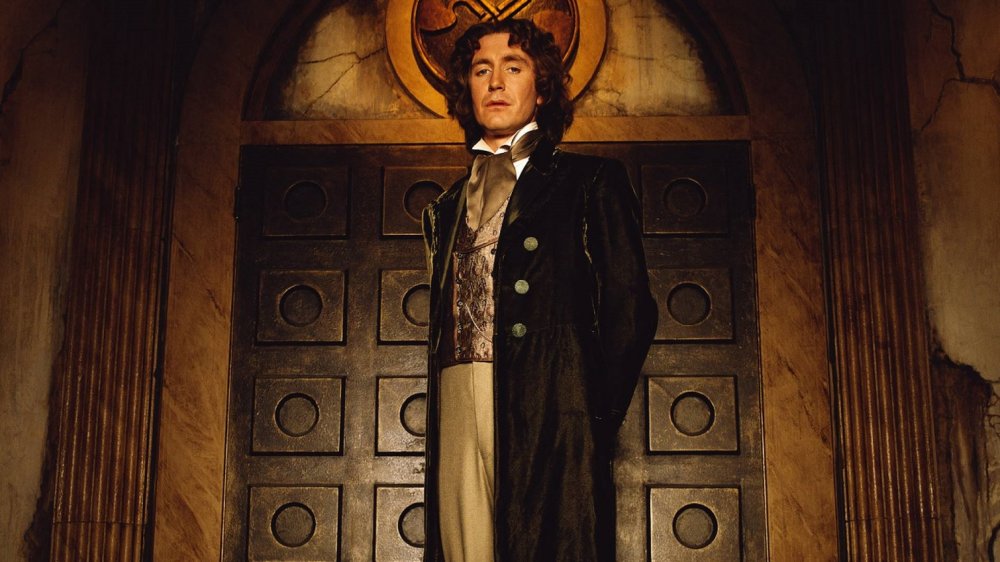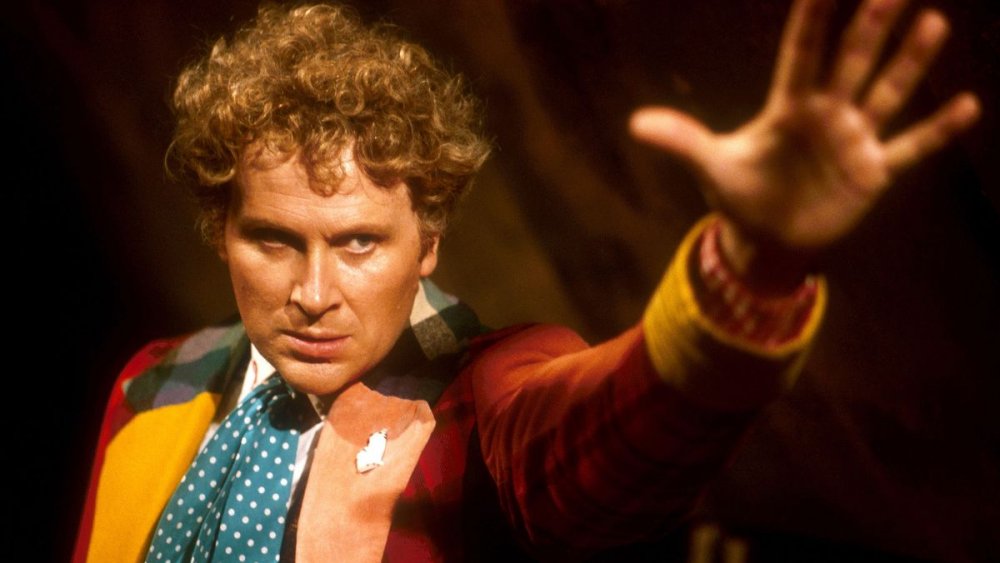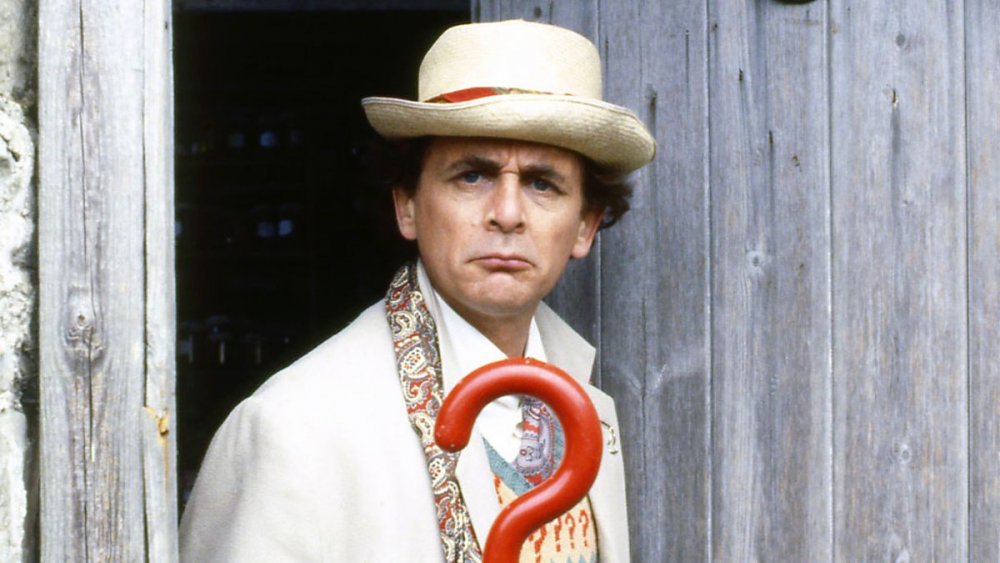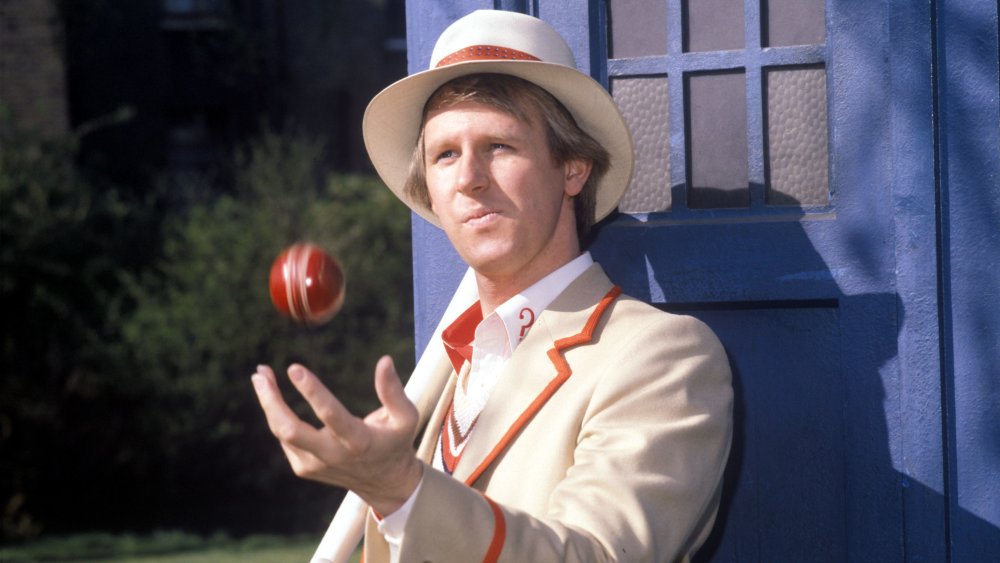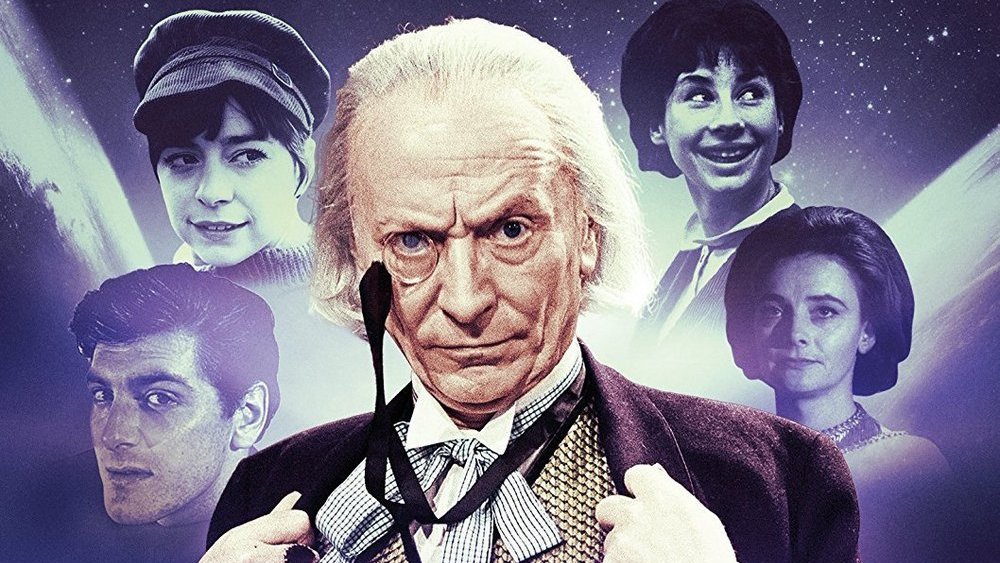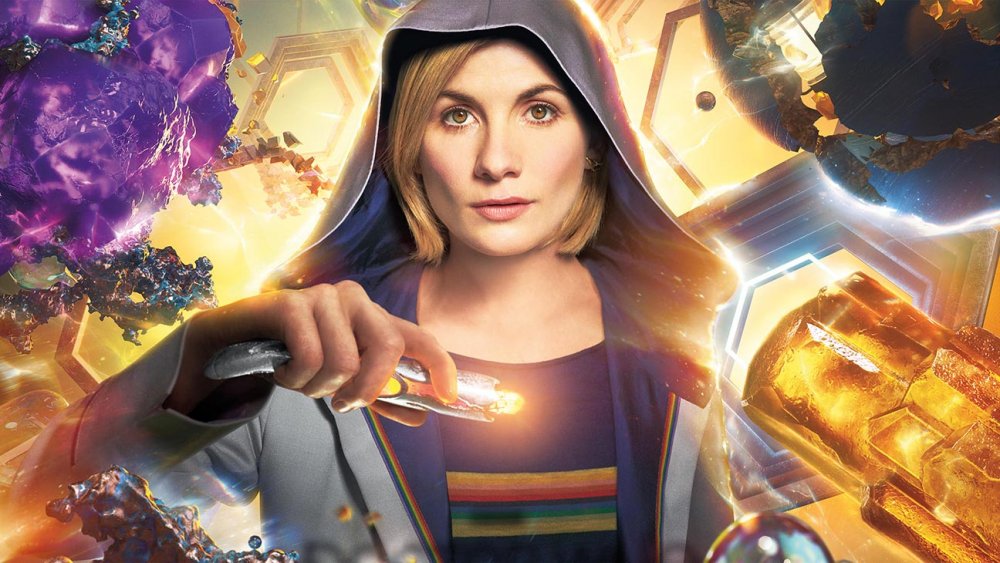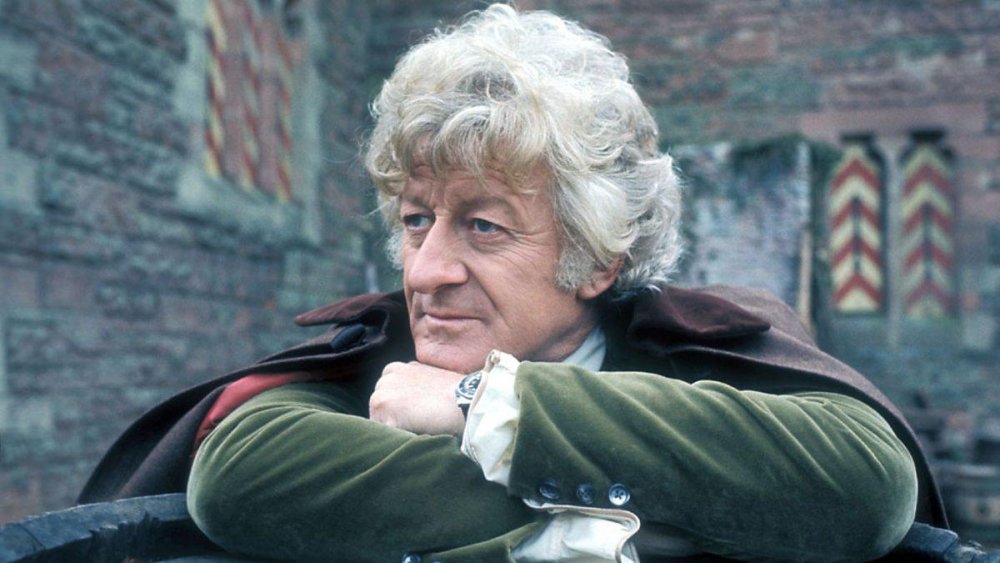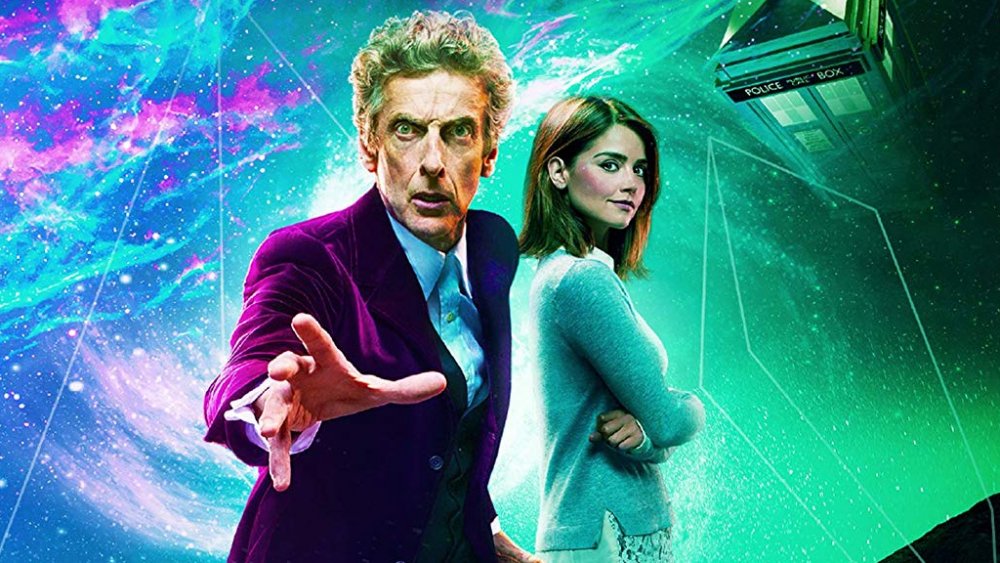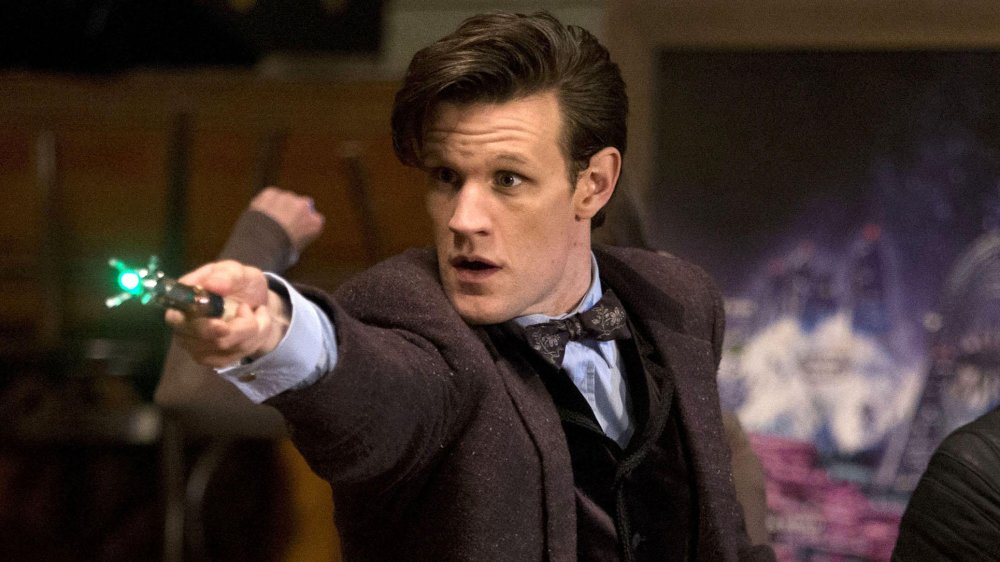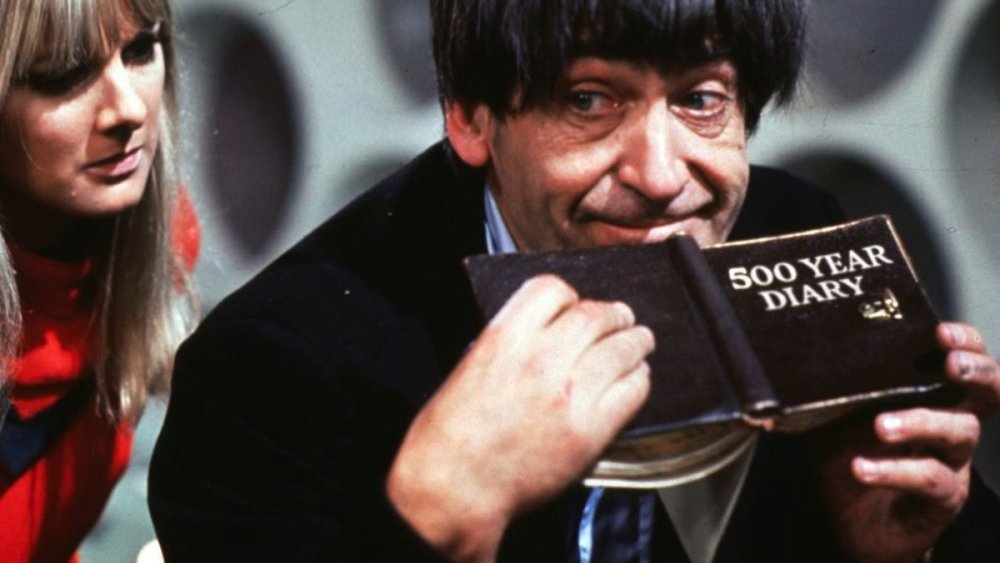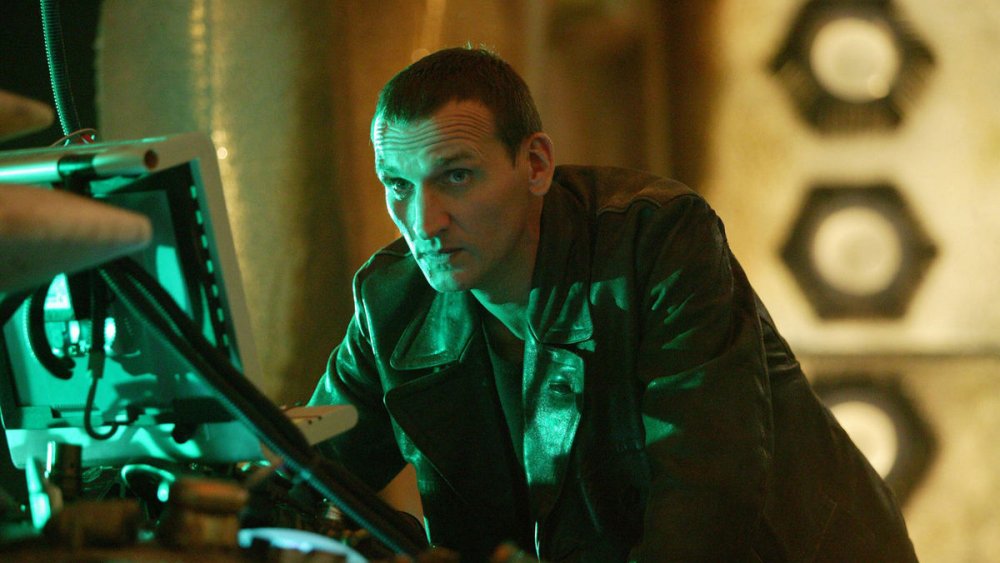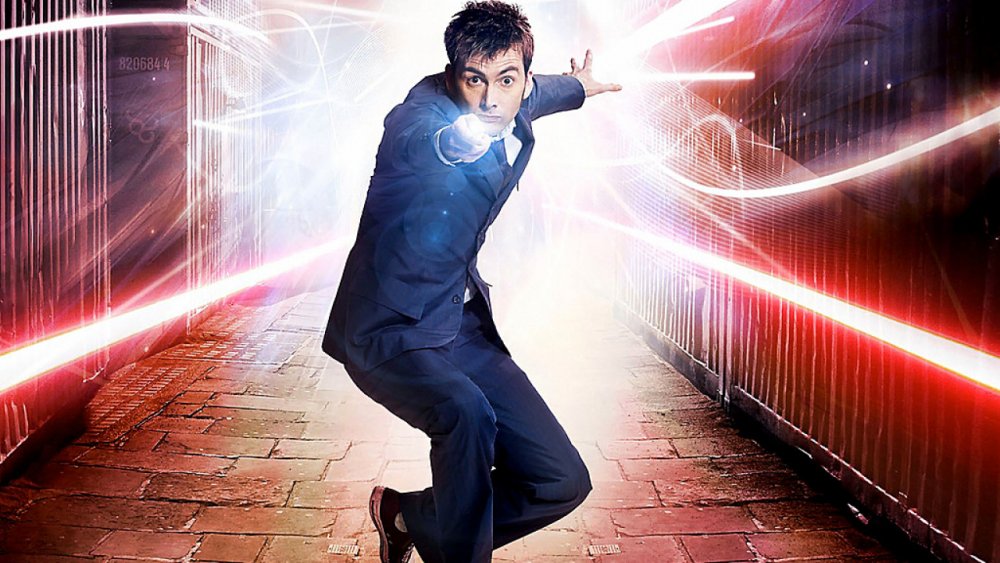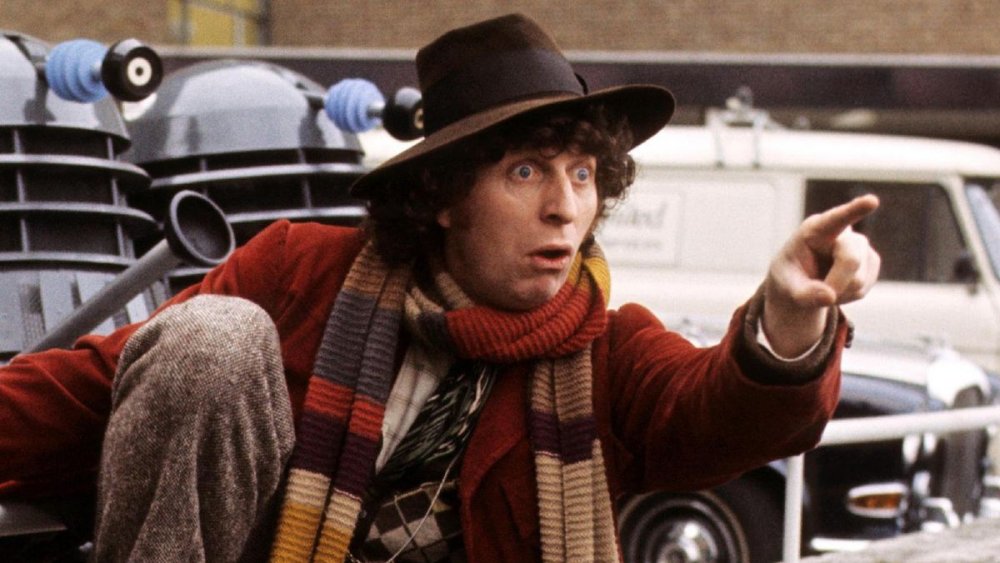The Doctors From Doctor Who Ranked Worst To Best
Arguing about which version of The Doctor is best on Doctor Who is nearly as old as the half-century-plus-running BBC series itself. It's a timelord-honored tradition that has been going on since William Hartnell laid down the mantle after four seasons (or "series" as they're called in the Doctor's adopted home of Cardiff). There's almost no doubt that fanboys of the distant past were yelling from opposite camps across the Troughton Divide.
Fighting over the minutiae is one of the best parts of fandom, and decades of television have built up plenty of fractures among a massive and ever-growing legion of fans. It's likely somewhat true that your Doctor allegiances are shaped by age and initial exposure — like fellow television dinosaur Saturday Night Live, you come to think whatever you saw first was best — but that doesn't mean we can't try to put our rational brains on to make an effort at creating a real, official and unimpeachable ranking of the Doctors.
We followed Stephen Moffat and spent years creasing our brows over interdimensional astronauts while plotting out timelines with red twine. It shouldn't be much harder to strain our brains and put the Doctors in their proper order.
So, let's get to it. Allons-y!
Honorable Mention: John Hurt as the War Doctor
John Hurt was made to play a grizzled veteran of an intergalactic war. He looks like he's seen bodies floating in a vacuum. His hangdog face and haggard face makes him perfect to play a Gallifreyan Oppenheimer, forever grappling with the fact that he dropped an unspeakable weapon on millions of people to end a great war.
The War Doctor's incredible backstory, and the time-manipulation plot that allows him to avoid destroying his homeworld, is a wonderful bit of world-building. But as he never actually starred in a single episode as the one, true Doctor (and his memory was blocked by further regenerations of the Doctor as a coping mechanism), it simply doesn't seem fair to rank him with the folks who have had their name on the marquee.
Consider this blurb a space for Peter Cushing, as well. And just in case we need to tell you, we won't be including any of the audio Doctors on this list. Our apologies to David Warner fans and anyone who's done a deep dive on Valeyard lore.
Paul McGann as the Eighth Doctor
Poor Paul never had a chance. He only appeared onscreen as the Doctor once, in a reviled made-for-television movie that undermined attempts to bring back the Time Lord for years. While McGann's performance as a romantic, frilly take on the Doctor could be seen as a precursor to the nu-Who love stories, his time as the Doctor amounted to little more than a failed pilot episode, a footnote in the long history of Who.
His time inside the TARDIS can be easily counted in minutes, so he has to land at the back of the pack.
(For those thinking that McGann got short shrift, or who loved his ruffled iteration of the Doctor, it's worth noting that the Eighth Doctor got quite a bit of play in the show's extended universe. Audio dramas, novelizations and comic books delve into his confusing and fractured timeline. But those aren't what we're discussing here.)
Colin Baker as the Sixth Doctor
Colin Baker was the Doctor for several years, but that doesn't mean he was given anything approximating a fair shake. The Sixth Doctor's tenure was marred with behind-the-scenes drama as budget shortfalls and other issues led to truncated seasons and long hiatuses.
He fought an uphill battle against an unpredictable schedule and absolutely insane costume, struggling through several seasons as the Doctor as viewers tuned in less and less reliably. In spite of all that strain, Baker did manage to turn out one of the most memorable arcs in the history of the series with "The Trial of a Time Lord." Even with the death of the series' scriptwriter and other offscreen catastrophes, Baker held down the role admirably until being dismissed after the series' 23rd season. Fan love of Baker's tenure expressed itself in many extended universe adventures, fleshing out threads that were abandoned when he was removed from the role.
Sylvester McCoy as the Seventh Doctor
The Doctor knows more about most things than the people around him, but he should never be above it all. That's a lesson that Sylvester McCoy and the creative team behind Doctor Who learned the hard way as they rode the series into the ground.
McCoy's erudite and self-important take on the Doctor rubbed viewers the wrong way and they abandoned the show in droves. The BBC did the formerly unthinkable and put the show out of its misery in 1989. To make matters worse, the Doctor was unceremoniously killed by gang members in a future San Francisco, playing into some of the grossest aspects of media during the period's crime panic.
While the Seventh Doctor got a second life in novelizations that sated Who fans during the interregnum, McCoy would go down as the actor who went down with his police box until Russell T. Davies revived the series in the '00s.
Peter Davison as the Fifth Doctor
Peter Davison filtered fellow Doctor Tom Baker's eccentricity through '80s cool, looking like Don Johnson from outer space in his three seasons at the helm of the TARDIS. The writers made the interesting decision to rob the Doctor of his well-earned wisdom. In spite of his centuries of inherited memories, Davison's doctor was a bit of an indecisive fop dropped on top of scripts that harkened back to the First Doctor's grave seriousness.
Credit Davison's charisma and skills as an actor for making Doctor Who sans all the things that fans have come to adore work. At the end of the day, though, workable is all Davison's tenure was. He did a fine job bringing some of the series' main antagonists back into the popular consciousness, as seven full seasons behind Baker's wild stories had moved the show away from battles with the Cybermen and the Master. His time was the last of the original Who's high years, sliding quickly without him into the nadir that led to the show's cancellation.
William Hartnell as the First Doctor
Stern, stentorian and grandfatherly, William Hartnell's Doctor Who came off as an intergalactic Mr. Wizard. He launched the series and is deservedly beloved for being the first person to don that mysterious moniker that lends us the title of the show, but no one thinks of him first when they try to pull up "The Doctor."
Hartnell made the series a success, allowing it to continue well past its sell-by date and stick in the brains of a younger generation of creatives who helmed the New Who years. For that alone, he should be praised.
However, he was followed by his granddaughter and two schoolteachers, and early episodes were appropriately schoolmarmish. The series was a long way from dinosaurs on a spaceship, leaning into the educational nature of the show. His stilted and cold take on the traveling alien emphasized the latter half of that phrase and left the warm, human-loving parts to be fleshed out by actors that followed.
Jodie Whittaker as the Thirteenth Doctor
It would be easy to feel sorry for Jodie Whittaker, if she didn't knock her performance of the Doctor out of the park. She stepped into the role as the first-ever woman to play the Doctor — and played it so well that pitying her for the misogynist backlash against her casting feels unnecessary. The doubters have been proven wrong by how well she holds down one of the most recognizable roles in all of fiction.
She still falls well below the highs of New Who overall. However, she has time to remedy that as the current possessor of the role of the Doctor. She swings the role back from Peter Capaldi's stand-offish thrill seeker, playing 13 as a bubbly and friendly helper who loves humans as much as she loves solving problems. Given that Whittaker is set to play the Doctor for years to come, her placement on this list may well change.
Jon Pertwee as the Third Doctor
What if the Doctor broke bones as well as he set them? That's the conceit at the heart of Jon Pertwee's Doctor, a savvy and dapper martial artist who read like a sci-fi twist on Britain's most recognizable cultural export.
Pertwee's tenure upped the action and laid the groundwork for big blowout episodes that would come with larger budgets in the aughts. Pertwee played the Doctor as a scrapper and a scientist, making him equally quick with a gadget or a fist. The Third Doctor was angry due to being forced to hang around Earth, venting via Venusian Aikido and diving into his off-Earth adventures with all the more gusto.
His tenure is an important building block in several other ways, marking the first appearance of Sarah Jane Smith as a companion, introducing the Doctor's Gallifreyan nemesis the Master, and reviving the Daleks as primary antagonists. Still, his tenure is firmly in the middle of the pack, reversed neutron flow or no.
Peter Capaldi as the Twelfth Doctor
Peter Capaldi was previously best known for his work as a foul-mouthed political operative and fittingly, he brought a good bit of darkness back to the role in his brief run as the Doctor. He played the character with a cold remove, amping up the alienness of the Time Lord in a way that hadn't been seen since the original run of the show.
Far from David Tennant's near-romance with a human, Capaldi's Doctor was a weary ancient outsider, who showed up to help but had almost no bedside manner to speak of. Moffat noted the new iteration's coldness and he called Capaldi's Doctor "much fiercer, madder [and] less reliable" than Tennant or Matt Smith. The characters around the Doctor recognize his weakness as his run goes on, having to balance their plan of attack against antagonists while knowing that 12 is an adrenaline junkie who loves to dive in with both feet.
Matt Smith as the Eleventh Doctor
Live by the Moffat, die by the Moffat. Matt Smith's eccentric and noodly performance as the Doctor rode the highs of his head writer's penchant for stirring speech, front-loading his run with memorable standoffs and scenery-chewing shouting matches. However, Smith was also in the main role when Stephen Moffat spiraled the series into a convoluted mess that couldn't just be waved away with "wibbly wobbly timey wimey stuff."
For many of the episodes, Smith is a perfect first Doctor for the show's intended audience: children. His giddy joy over dinosaurs on a spaceship and his wonder at seeing the perseverance of people well into the future makes him an ideal hero for a child. However, much of that goodwill is squandered by byzantine plot lines that can be difficult to square even as an adult.
To follow the story of the Doctor, Amy and Rory late in Matt Smith's tenure was a good way to risk a nosebleed, but the highs of his first appearance and a chills-inducing staredown between the Doctor and every major villain were worth the headache.
Patrick Troughton as the Second Doctor
If Patrick Troughton only managed to make people get on board with the idea of an entirely new actor playing the Doctor after over 150 episodes, his work would be admirable. The fact that Troughton went above and beyond that, securing a place above the original actor in most fan's hearts, is remarkable.
Credit a shift in writing and costuming to play to Troughton's strengths. The so-called "Cosmic Hobo" turned the Doctor from a lecturer to a loveable, spacefaring tramp. Troughton played the Doctor with the wide-eyed wonder you might expect from someone who has the ability to travel the entire universe.
The hobo aesthetic leached into the script. Troughton's Doctor got in and out of stories much quicker than Hartnell's four-part historical epics, cementing the "Monster of the Week"-style story that has produced some of Dr. Who's most thrilling hours. Troughton helped build the antagonism between classic villains and the Doctor over his three-series tenure as he nearly always encountered a villain every time he stepped out of the police box.
Christopher Eccleston as the Ninth Doctor
Christopher Eccleston gives us some idea of how a longer run for John Hurt's War Doctor would play out. The first Doctor of the Doctor Who revival played the character with all the weight of the Time War on his shoulders. His outfit reflected his brooding nature, suiting the alien traveler up in a leather jacket and topping it off with an angry stare. His take on the Doctor preceded the grimdark era of genre movies, but his performance can be seen as an early adopter of that gritty style of reimagining.
In particular, he earns his dour attitude in the modern classic episode "The Doctor Dances." His harsh demeanor cracks when he learns that his crew has managed to set things right without causing death and destruction. In an instantly iconic moment, Eccleston turns to the camera with a maniacal grin on his face and shouts "Just this once, everybody lives!" His tenure on Who brought the show back to life and that one crack allowed light to shine into the series as they barreled toward one of the series' most adored leads.
David Tennant as the Tenth Doctor
For many people born in the late '80s on, David Tennant is the Doctor. His affable but confident turn as the Gallifreyan brought a massive wave of new fans, who certainly weren't turned away by the fact that the writing hit a high for New Who during Tennant's time, balancing the steady hand of Russell T. Davies with the bursts of originality from soon-to-be showrunner Steven Moffatt. Tennant was also buoyed by a murderer's row of companions in Billie Piper's lovesick Rose, Catherine Tate's wisecracking Donna, and Freema Agyeman's intelligent and assured Martha. Tennant's run introduced the tragic plot of River Song and included several all-time great episodes like "Blink" and "Human Nature."
Altogether the writing and cast, paired with a budget reflecting their suddenly high ratings, produced the best run of the series since its revival.
Tom Baker as the Fourth Doctor
Tom G.D. Baker. What can we even say? If you're over a certain age, his wooly hair and long scarf are bound to be the image in your mind's eye when you recall the Doctor. He's lodged there for more reasons than the fact that he held the position longer than any other actor, though that certainly doesn't hurt his case for "Best Doctor Ever."
Tom Baker hit the perfect balance between a compassionate and human-loving leader and an odd outsider with a whimsical view of the universe. Baker handled everything from the creeping horror of his early seasons to the zippy and fantastical scripts penned by legendary author Douglas Adams. In all ways, from the comical horror camp of "The Brain of Morbius" to the high weirdness of "City of Death," from K9 to Romana, Baker's tenure highlighted what the series does best. Even better, he did it with a grin on his face and jelly babies in his hand.
